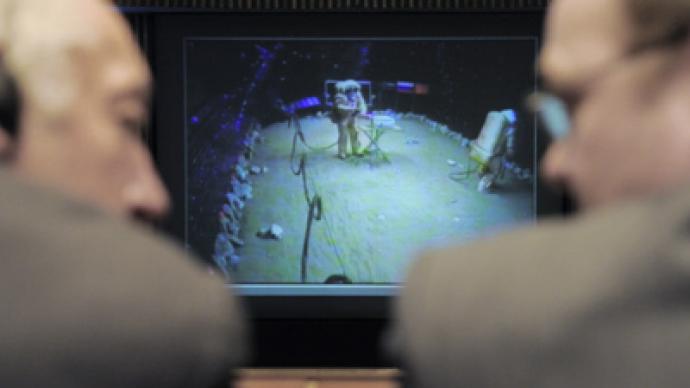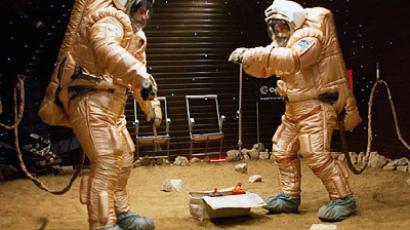Mars-500: red planet return countdown

One of the most epic human experiments ever undertaken is coming to an end. After spending nearly 18 consecutive months in a pod in Moscow mimicking a spacecraft traveling to Mars, a six-strong international crew has now “returned to Earth’s orbit.”
They are expected to land safely on November 4.Since current missions to the International Space Station usually last only six months, the Russian-designed MARS-500 experiment was designed to test the impact on a group of volunteer “cosmonauts” of a longer journey. Three Russians, an Italian, a Frenchman and a Chinese space flight instructor – all male – had to endure cramped conditions, space food, and even delays in communication during a simulated journey away from Earth. Much of the purpose of the experiment was to get an insight into the psychological state of the long-term space traveler.“They’ve had squabbles over everyday things, but there has been no major conflict. Nobody out of the group has emerged as an obvious leader, and that has allowed the crew to remain in balance, with no factions,” Aleksandr Suvorov, the mission’s Head of Research, told the web portal Marsiada.ru. A major study on non-verbal communication between the international crew members is set to be published imminently.The scientists also simulated extreme situations, once turning off all power supplies inside the craft and telling the crew there was an emergency happening in the outside world.Researchers also studied the physical state of the space travelers, examining the effects of the absence of night and day on sleep cycles (the isolation pod is completely windowless) and the need for exercise, with the crew apparently feeling listless and unproductive unless they regularly used the gym equipment inside the craft.When the pod arrived on “Mars” earlier this year, a special outside module was attached to it, and the crew members went for several spacewalks, collecting soil samples and studying them.Mission controllers say that after the “high” of the landing, the return leg of the trip was particularly difficult.The crew complained repeatedly about the things they are missing. For Wang Yue from China it is decent cooking: “I am missing my national cuisine. Every time I sit down to eat I have to have a major internal debate and convince myself. My stomach protests against this food,” he told Moskovsky Komsomolets newspaper. While, perhaps expectedly, Italian Diego Urbina says he is “missing the opportunity to meet new people.”Once the six Mars-500 space travelers are back on Terra Firma, they will have to undergo a four-day quarantine, before finally being allowed to hug their families.Although NASA and the Russian and Chinese space agencies have plans for manned travel to Mars there are no confirmed missions to the Red Planet scheduled in the immediate future.













